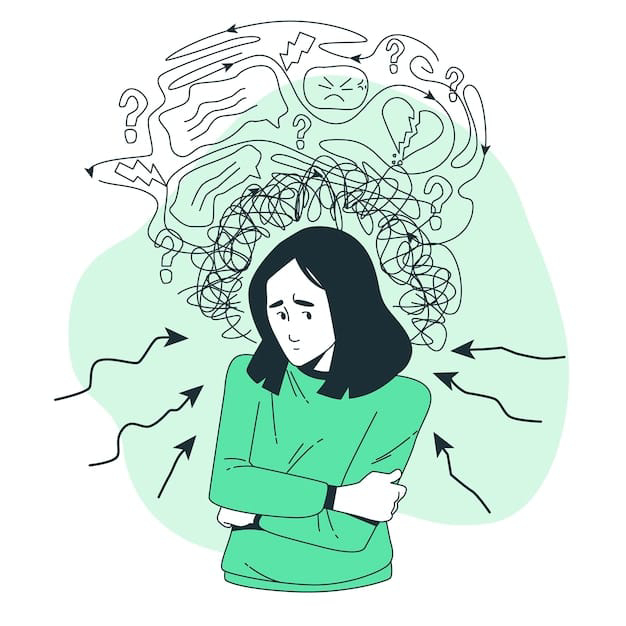These blogs are designed how to learn more about human's mindset, behavior, habit and deep belief, plus, observe about the life system and philosophy.
what you are not changing, you're choosing the consequences
The mind is strong but the body is weak
How to remove negative thoughts from mind permanently
What is happy returns
What is life definition
Three body problem
Chinese philosophy
Hi, good reader, welcome to my blog, Today would like to share about the topic "Chinese philosophy", the main reason why I choose that topic because many people admire Chinese culture and Chinese philosophy, many people believe that China has many tremendous improvements, especially in business strategy and sophisticated technology, besides that, China has old culture which can bring good impact to the Chinese people,
Chinese philosophy has a rich and diverse history, spanning thousands of years. Let’s explore some key aspects:
- Origins and Context:
- Chinese philosophy emerged during the Spring and Autumn period and the Warring States period. This era, known as the “Hundred Schools of Thought,” witnessed significant intellectual and cultural developments.
- Elements of Chinese philosophy can be traced back even further, with influences found in texts like the I Ching (the Book of Changes), which dates back to at least 672 BCE.
- Major Philosophical Schools:
- During the Warring States era (475-221 BCE), several major philosophical schools arose:
- Confucianism: Focused on ethics, social harmony, and proper conduct. Confucius emphasized filial piety, respect for tradition, and moral cultivation.
- Legalism: Advocated strict laws, centralized authority, and harsh punishments to maintain order.
- Taoism (Daoism): Embraced natural spontaneity, simplicity, and the concept of the Dao (the Way).
- Other lesser-known schools included Agriculturalism, Mohism, Chinese Naturalism, and the Logicians.
- Early Beliefs:
- Shang dynasty thought was based on cycles observed in nature, such as day and night, seasons, and lunar phases. This cyclical view contrasted with Western linear progression.
- Ancestor worship was prevalent during the Shang dynasty, and the concept of the Mandate of Heaven justified Zhou rule.
- Key Concepts:
- Dao (the Way): Represents the fundamental principle underlying reality and guides ethical behavior.
- De (virtue): Refers to moral power and integrity.
- Li (principle): Signifies cosmic order and ritual propriety.
- Qi (vital energy): Symbolizes life force and material energy.
- Tai-chi (Great Heavenly Axis): Unites complementary polarities, Yin and Yang.
Chinese philosophy continues to influence culture, ethics, and thought, making it a fascinating and enduring tradition.
Descartes philosophy
Hi, good reader, good day, today I would like to share about the topic "Descartes philosophy", the main reason why I choose that topic because many people admire about his personality and his science work, as we know that René Descartes, a French mathematician, scientist, and philosopher, is widely regarded as the founder of modern philosophy. many people think that his principle is like Socrates, Greece Philosopher, Rene Descartes discovers many things that can resolve the problematic mindset where it occurs to the modern age, His groundbreaking ideas have left a lasting impact on various fields. Let’s delve into some key aspects of Descartes’s philosophy:
Cogito, Ergo Sum: Descartes famously declared, “I think, therefore I am” (originally in French: “Je pense, donc je suis”). This profound statement captures his epistemological foundationalism. By applying methodical doubt, he dismissed knowledge derived from authority, senses, and reason. Instead, he grounded his new epistemology on the intuition that when he is thinking, he exists.
Mind-Body Dualism: Descartes formulated the first modern version of mind-body dualism. According to his metaphysical framework, the mind (essence of thinking) and matter (essence of extension in three dimensions) are radically distinct entities. This distinction laid the groundwork for the mind-body problem that continues to intrigue philosophers and scientists.
Rationalism and Innate Ideas: Descartes’s metaphysics is rationalist, emphasizing innate ideas of mind, matter, and God. He believed that certain truths are inherent within us, independent of sensory experience. However, his physics and physiology were empiricist and mechanistic, based on observation and sensory data.
- Notable Works: Descartes authored several influential works, including:
- “Meditations on First Philosophy”: A foundational text that explores skepticism, the existence of God, and the nature of reality.
- “Principles of Philosophy”: An exposition of his philosophical system.
- “The Discourse on Method”: Where he introduced his famous maxim “Cogito, ergo sum.”
- “La Géométrie”: A work that contributed to the development of analytical geometry.
- “The Passions of the Soul”: An exploration of human emotions and their connection to the body.
Descartes’s legacy extends beyond philosophy; his influence also permeates mathematics, with the Cartesian coordinate system named after him. His commitment to reason, doubt, and foundational thinking continues to inspire scholars and thinkers across disciplines, now I have question to you, if you have daily problem which often happens, do you apply Descartes's groundbreaking idea or not?, if you can understand His mindset, means, you can understand his perspective, finally you can do like what Descartes did in the past, remember this; problem is problem, problem doesn't need the solution from you, problem is designed to develop your mindset an improve your troubleshooting's capacity, don't ever think problem can be solved by your service, problem abides in the world because many people are willing to manifest the problem into reality, if problem can be solved by human being, it means, the world will end, problem will never be settled down, it is just hidden into human's incapacitation, hopefully this article can help you to improve your life career, good luck.
Business philosophy
Hi, good reader, good day, today I would like to share about the topic "business philosophy", the reason why I choose that topic because not everyone can apply business philosophy on their business model, a business philosophy is a set of guiding principles that a company follows to achieve its goals and objectives. It is a reflection of the company’s values, mission, and vision, and it helps to guide the company’s operations and decision-making processes. A well-defined business philosophy can help to unify a team, improve relationships with customers, and set an ethical foundation within the organization.
Here are some basic steps to create a business philosophy:
- Identify value-oriented parts of your company.
- Review business philosophy examples.
- Brainstorm words and concepts that you want people to associate with the organization.
Certainly! Here are some examples of business philosophies that companies and organizations may adopt:
- Customer-Centric Approach:
- Philosophy: Prioritize customer needs and satisfaction above all else.
- Example: Amazon’s customer obsession, where they strive to be the most customer-centric company globally.
- Innovation and Creativity:
- Philosophy: Encourage creativity, experimentation, and continuous improvement.
- Example: Google’s “20% time” policy, allowing employees to work on personal projects and explore new ideas.
- Sustainability and Social Responsibility:
- Philosophy: Commit to environmental conservation, ethical practices, and community well-being.
- Example: Patagonia’s dedication to environmental activism and sustainable business practices.
- Quality Excellence:
- Philosophy: Deliver high-quality products or services consistently.
- Example: Toyota’s “Kaizen” philosophy, emphasizing continuous improvement in manufacturing processes.
- Employee Empowerment and Well-Being:
- Philosophy: Invest in employee development, work-life balance, and job satisfaction.
- Example: Zappos’ focus on creating a positive workplace culture and empowering employees.
- Agility and Adaptability:
- Philosophy: Be flexible, responsive, and open to change.
- Example: Netflix’s ability to pivot quickly in response to market shifts and technological advancements.
- Transparency and Trust:
- Philosophy: Foster open communication, honesty, and trust with stakeholders.
- Example: Buffer’s transparent salary formula and public sharing of company metrics.
Remember that each company’s philosophy is unique, shaped by its values, leadership, and industry context. business is not about selling something you love but a business must offer something inspired and businesses often combine multiple philosophies to create their own distinct approach, business is like changing season, we must be ready with the consequences, like up and down of demand and supply in the marketplace, there is no good business if the sales can't offer a good supply to the marketplace or the sales can't pay the business operation, in business scope, we must have the cash power, rather than having the power of influence, the real power in business is lies in the market's demand and the cash power, I think my explanation is enough, hopefully this article can help, good luck.
Progressivism philosophy of education
Hi, good reader, good ay, today I would like to share about the topic "Progressivism philosophy of education", the main reason why I choose the topic because many educations don't teach about the real education which contents about the moralism, philosophy, socialism, instead, they promote the casted system where students can't recognize their real potential and students tend to do something where it can delay their natural potential to grow, Progressivism is a student-centered philosophy of education that emphasizes practical learning, real-world problem-solving, and democratic cooperation. Let’s delve into its key characteristics:
Rooted in Pragmatism: Progressivism is firmly grounded in the philosophy of pragmatism. Unlike Perennialism, which emphasizes universal truths, progressivism focuses on human experience as the basis for knowledge rather than authority.
Educational Focus: The heart of progressivism lies in engaging students in real-world problem-solving activities within a democratic and cooperative learning environment. Students actively apply the scientific method to find practical solutions.
Improving Society: Progressivism emerged in the mid-1920s and remained influential until the mid-1950s. A central tenet is that schools should contribute to societal improvement. By involving students in real-world tasks, progressivism was seen as a working model of democracy.
Curriculum: A Progressivist curriculum is characterized by its relevance to everyday life. It includes subjects that connect directly to practical experiences, fostering critical thinking and problem-solving skills.
Role of the Teacher: In a progressive classroom, teachers act as facilitators who guide students’ exploration and encourage independent thinking. They create an environment where students actively construct knowledge.
Role of the Learner: Students take an active role in their learning. They collaborate, investigate, and apply their knowledge to real-world situations. Learning becomes a dynamic process rather than passive absorption.
For more insights, you might find this article on progressive education intriguing: Progressive education: Why it’s hard to beat, but also hard to find. It explores the essence of progressivism and its practical implications, the reason why education doesn't apply efficient practices because there is idealism where it can block student's future, idealism comes from essentialism, Let’s explore about the key differences between Progressivism and Essentialism in education:
- Philosophical Foundations:
- Progressivism: Rooted in pragmatism, progressivism emphasizes practical learning, real-world problem-solving, and democratic cooperation. It values experience as the basis for knowledge.
- Essentialism: Essentialism, on the other hand, is grounded in idealism. It focuses on universal truths and a core curriculum that imparts essential knowledge and skills.
- Purpose of Education:
- Progressivism: Aims to prepare students for active participation in a democratic society. It emphasizes critical thinking, creativity, and adaptability.
- Essentialism: Seeks to transmit cultural heritage, moral values, and essential knowledge. It prioritizes academic rigor and foundational subjects.
- Curriculum:
- Progressivism: Favors a relevant and flexible curriculum that connects to students’ lives. It includes practical subjects, interdisciplinary projects, and experiential learning.
- Essentialism: Advocates for a structured and standardized curriculum with a focus on core subjects such as mathematics, science, literature, and history.
- Teaching Approach:
- Progressivism: Teachers act as facilitators, guiding student exploration and encouraging independent thinking. Student interests and experiences shape the learning process.
- Essentialism: Teachers play a central role as experts who impart knowledge. They follow a structured curriculum and emphasize discipline and order.
- Student Role:
- Progressivism: Students take an active role in their learning. They collaborate, investigate, and apply knowledge to real-world situations.
- Essentialism: Students are passive recipients of information. They absorb knowledge through direct instruction.
- Assessment:
- Progressivism: Assessment focuses on process, problem-solving, and creativity. Portfolios, projects, and performance-based assessments are common.
- Essentialism: Assessment emphasizes content mastery through tests, quizzes, and standardized assessments.
In summary, progressivism prioritizes student engagement, practical skills, and democratic values, while essentialism emphasizes foundational knowledge, academic rigor, and traditional teaching methods. Both philosophies have their merits and continue to shape educational practices worldwide, hopefully this article can give you an insight about philosophy of education, good luck.

















